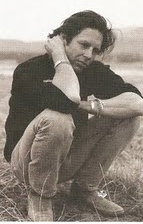
John Doe is one of the primary songwriters and singers for the band X, along with Exene Cervenka. X’s 1980 debut album Los Angeles, produced by Doors keyboardist Ray Manzarek, ranks as one of the best punk albums of all time. This was followed by other acclaimed X albums, and a solo career that explored more of a roots music direction. Doe is also an actor who has appeared in a variety of films and television shows.
This interview was conducted by telephone on 11/4/10, while Doe was driving to the airport for a trip to Las Vegas. It formed the basis of this preview article for X’s XMAS concert on 12/16/10 at the Majestic Ventura Theater.
Jeff Moehlis: What brought you to Los Angeles?
John Doe: I needed to get out of Baltimore, and I’d already been to New York and it seemed like that scene was fully developed. And I was tired of the East Coast. I came to LA six months before I moved here, and something clicked right away.
JM: How did the band X come together?
JD: I answered a free ad in a classified paper to Billy, and he answered my ad which was worded similarly. I met Exene at a writing workshop in Venice, California, and then we found DJ [Bonebrake] playing at The Masque with a band called the Eyes. Exene and I met about two months after I moved to LA, and I met Billy around the same time. That was in the end of ’76.
JM: How would you characterize what each person brought to the band?
JD: Oh, it’s probably better for writers to do that.
Billy obviously brought the element of rockabilly, and that was something that was part of punk rock, I mean, to return back to the roots of rock and roll, which was to make songs short, and not too ponderous. To be simpler about the lyrics, and about what the song was saying musically and lyrically.
I’m the traffic director. I’m the traffic cop in the band. I put a lot of elements together, Exene’s writing and my writing, and putting together the songs.
DJ obviously has his own style of drumming, and we kept encouraging him to look for more unique ways of interpreting the songs. He was really influenced by Captain Beefheart’s style of drumming, which is very eclectic.
And Exene, she’s the quintessential lead singer, at least she was then. Lots of problems to work out, of which she’s worked out a lot, or most of them. That makes her a great lead singer. She didn’t sing in other bands, so she didn’t have a traditional style of singing or harmony, or things like that, which is good because it made our sound unique.
JM: Early on, what were your goals for the band? Did you want to make a living, or make it big, or just play?
JD: I’m sure they were different for each person in the band. I can only speak about my goals, and they were to make a living, and to be an artist, which I succeeded in both.
JM: Did you live comfortably enough from just the music?
JD: Not at all [laughs]. No, we just didn’t have to have day jobs. We worked hard, but we enjoyed a bohemian lifestyle. We enjoyed the lifestyle of an artist. But none of us bought houses. I didn’t buy a house until I started working in films, in movies. Yeah, we paid our rent and paid our bills.
JM: How would you describe X’s place in the LA punk rock scene?
JD: Well, I think we had more variety and a little better songwriting, and a lot more determination and ambition. So we sort of rose to the top. But that was because we worked hard, and weren’t afraid to get out of LA.
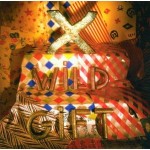
And we had a lot of help and a lot of support from the people in LA. I mean, we sold out the Greek Theatre without being signed to a major label record company. We sold the Greek Theatre in ’81, I think, when Wild Gift was released, and that was on Slash Records. Before there was any real Indie underground network. That was just six, seven thousand people in LA who wanted to see a rock band.
JM: Did you feel like you had to hide any of your influences to fit in with the punk rock scene? For example, your later albums had some country music influence.
JD: It wasn’t hiding, it was just, at least for the first two or three years, needing to draw a line and not use those influences at first, at least in the songwriting.
JM: How did you end up working with Ray Manzarek?
JD: He came to see us at the Whisky A Go Go. We played the song “Soul Kitchen”, and he didn’t recognize it, but his wife Dorothy did. “They’re playing your song”, and he said, “What?” She goes, “Yeah, they’re playing ‘Soul Kitchen'”, except a lot faster and louder.
In relation to that previous question you asked, I think that’s a problem that a lot of bands experience, especially early on, where they try to include every influence, or every style of music, and therefore they don’t have an identity. I would give Billy a certain amount of credit. It was a joint decision, but that was one of the ways that we developed our style.
JM: Back to Ray, how would you characterize what he brought to your music and to your recordings?
JD: He was the objective voice that we needed, saying “That was a good take” or “That was not as good”. He was never negative about things. He was always very positive. And I think his greatest accomplishment was just allowing us to do what we did. I mean, he made suggestions, did arrangements. But as a producer, he was not the kind of producer that you have nowadays, who’s also an engineer. He was there to get the performance, and to just establish an environment to make a good record.
He made X records the way that they made Doors records, which was to set up and play and make the song sound good. Don’t worry about mistakes or things like that.
JM: How did your songs typically come together? Or is there a typical?
JD: No, there really isn’t. Some songs I wrote mostly by myself, and Exene edited them. Other songs, she wrote the entire song beginning to end, and I didn’t even need to change but a few words. Other times she would write a verse and the chorus, and I would write the other two verses.
I wrote most of the music, but Billy would throw in a chord here and there. Not just here and there – he would make suggestions on how to change a chord, because a lot of the early X songs I wrote on bass guitar, so he had a lot of latitude on how to voice the guitar parts. You know, a finished X song was done by all of us.
The songwriting, in a classic definition, Exene and I did all kinds of different ways. I would have one melody in mind, and she would typically change that melody to fit how she thought it should go. And we always left a certain amount – I’d say thirty percent – undone before we recorded things. The lyrics were all there, the general melody was all there, but there was always room for spontaneity. We always made sure that we experimented as we were making the record.
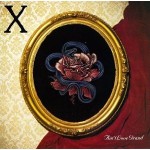
The only record that didn’t happen on, you can really tell, was Ain’t Love Grand. It was the first record we did without Ray, and everything was totally charted out before we started playing. Which made it a very stiff and German sort of record, because it was a German [Michael Wagener] who was the producer. And, I mean, that’s fine. I’m not judging that. It’s just not my favorite, that’s all.
JM: One of the distinctive elements of X is the harmonies with Exene. Were those worked out, or did they happen naturally?
JD: Well, you could answer that question [laughs]. Yes, it was natural. We just sort of sang together. The fact that we were a team, and at least in creativity we were soul mates, being together all the time, being married, and all that sort of thing, it happened.
I was always influenced by harmony that went against the grain. One of my bigger influences that I used but I hid in the early days was The Band. They had an incredibly creative loose knit but beautiful style of harmony. And Exene wasn’t trained by being in a bunch of other bands.
JM: That’s one thing that drew me to X. The harmonies seem very natural, but unconventional. It’s quite a good mix.
JD: That’s exactly what it was. On some songs it happened very quickly. The early songs, you know we rehearsed, like, four or five nights a week. That was our job.
JM: Had you typically performed the songs live before recording them?
JD: Yes, some more than others. Ain’t Love Grand we didn’t perform them live very much at all. More Fun [in the New World] we did. It was sort of progressive, like most bands. Los Angeles and Wild Gift we had performed quite a bit. We’d even recorded “Adult Books” and “We’re Desperate” way before. Yeah, so it was progressively less playing live [beforehand], but we still had the songs written for three or four months before we recorded them.
JM: Talking about performing live, there was the tragedy when Exene’s sister was killed in the car accident on the way to your concert, and you guys still performed. When you think back on that night, what do you feel about that?
JD: I feel like it was a huge mistake. I wish we wouldn’t have. I know there’s a recording of it somewhere, but I hope it never surfaces. Exene, especially, was in an unbelievable amount of pain. We should’ve just apologized to the people that came to see the band, and should’ve said, “Sorry, no show”.
I don’t necessarily regret that, but it was foolish. I would never do it again.
JM: When you would tour outside of LA, did the audiences get it? What was it like touring in the Midwest or other places?
JD: At first there was no Midwest to tour in. There was no network. We started touring the Midwest in ’81, ’82. I mean, the only places to play were LA and New York.
Most audiences got it, because X was a really powerful and really good band. So, yeah, it was a whole different time, because people had to find the music, they had to go to their record store and order records because they weren’t available. I mean, you heard about things word of mouth, that
sort of stuff.
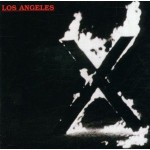
JM: The concert in Ventura, and the California mini-tour, is a celebration of the 30th anniversary of the album Los Angeles. I’d like to ask you to reflect on a few of the songs from that album, starting with “Your Phone’s Off The Hook, But You’re Not”.
JD: Exene wrote most of the lyrics to that. I wrote the music, and I would say it was my attempt at writing an Eddie Cochran song. It was basically about her sister getting a lot of grief from the people in New York, who were in the music scene there. That’s about it.
JM: That was the first X song that I heard, in the early 1990’s in Iowa when I took a class in college on the history of rock and roll. When I heard it, I rushed out to buy Los Angeles and Wild Gift.
JD: That’s cool.
JM: Another song, the title track “Los Angeles”.
JD: The lyrics were very influenced by Charles Bukowsky, who I was a big fan of. I still think he’s good – he was sort of one of my literary heroes. That’s why the words are very simple, and are provocative, using “nigger” and “Jew” and “fag” [actually “homosexual”], and all that sort of stuff.
It was a study on one of Exene’s childhood friends who left [Los Angeles]. She left because she was really disillusioned, and didn’t like the city anymore. Her kind of racist tendencies were brought out by the fact that she was just done with the city. That’s about it.
Ray suggested that we repeat the four chords that opened the song. He said, “That sounds great, you should do that twice.” Which I think is probably the greatest tool that he taught me. If it sounds good once, then try it twice and see if it’s better.
JM: I find that song to be musically more sophisticated than most punk rock.
JD: You know, I’d written songs before I started writing songs for X. And Billy had played intricate guitar parts before he played in X. We hid those influences pretty well, but, you know.
Nowadays I’m trying to write even more simply. Yeah, whatever. I can’t explain that. I suppose it has to do with what you’re influenced by, and not being satisfied with just the old cliche of rock being three chords. Which is actually wrong, it’s totally wrong. If you listen to almost any Ramones song, it has at least five or six chords, and Ramones songs are almost like prog rock, because they have all these different changes and modulations, and they have these different parts, and stuff like that. And so, that whole idea is just something people just like to say.
JM: Another song off the album, “Nausea”. Can you reflect on that song?
JD: Well, a lot of people thought it was about heroin, but it was actually about having a hangover. Exene wrote all of the lyrics. I’d say that song was influenced by the No New York wave. I tried to write a really, I don’t know, a dumb song. Just a slow, drone-like song. And then Exene basically, except for the chorus, she made up all the melodic part of that. Which doesn’t have an intricate melody, but it certainly makes it a different landscape from what you could’ve used for it.
JM: And then the song “Johnny Hit and Run Paulene”?
JD: Well, you know, we did speed back then, snorted speed. And it was a little bit about that. Also Exene wrote the line “Johnny Hit and Run Paulene” and taped it on our door, and it was there for probably six months, and I kept saying, “You know, that’s a really good title, I just have to figure out what the story is behind that.”
I also read about the Year King, which isn’t a myth but is something that happens in islands and tribal communities, where they make a person king for a year, and he’s allowed to have and do everything he wants. He’s the king, for the year. And then he’s killed and cut up and put onto the crops, onto the land so that the crops will grow well. Kind of like The King of Comedy: “Better to be king for a night than a schmuck for a lifetime.”
JM: One other song that’s not actually on the Los Angeles album, but you recorded before it and then after it on Wild Gift, “We’re Desperate”.
JD: Everybody was changing apartments every six months. That’s where the landlord comes in. It was kind of a comment on our crazy, bohemian lifestyle. And that phrase, “It’s kiss or kill”, it was kind of around. It was a phrase that people said.
JM: That’s one of my personal favorites. But really, when I listen to just about any of your songs I really like it.
JD: Maybe that’s the reason we still can play without being too much of a nostalgia act, because we never had one big hit. The songs are not purposefully obscure. They’re very direct, but they’re also not just pop songs. They have that element, but they’re not trying to kiss your ass. They are available.
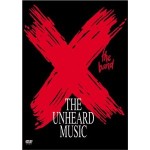
JM: At the Ventura show, there’s also going to be a screening of the documentary The Unheard Music. Can you tell a bit about that movie?
JD: Well, we’d need a whole interview for that. But basically, Bill Morgan, the director, wanted to make a movie about us. He went on for about four years. He’d get some film, he’d do some filming, and then we wouldn’t hear from him for about six months. The story develops and we developed. We started in about 1979, and finished in ’83 or ’84, something like that.
It looks good. We’re younger, and more handsome. But it doesn’t matter. It’s not just a concert film, it’s not just about a certain short period of time in the life of a band, it’s pretty wide-ranging. And it also has a lot of social commentary, what the music industry and what the USA was like at that time.
JM: A little over a year ago, Exene announced that she has MS. I’m curious how she is doing?
JD: She’s fine. She’s had it for maybe twelve or thirteen years, and the diagnosis was recently confirmed. I think her symptoms are pretty mild. She’s still the same old Exene.
JM: What are your future plans musical or otherwise?
JD: I plan to stay alive for a long, long time. But that’s anybody’s guess. I feel that I have many more things to do, and that’s my priority, taking care of myself and being healthy.
I’m going to be recording a new record in December and January. Jill Sobule and I did a record together which will be available download first, and will be released in January. It’s some old and new songs by Jill Sobule and I. We’ve done a lot of touring together. You know, X will just continue to play. I think Exene has a new record coming out in February on Bloodshot. And DJ has the Orchestra Superstring and the Bonebrake Syncopators.
JM: Is it still fun to play the old X songs?
JD: Absolutely. Like you said, they’re fairly intricate, and there’s always room for different interpretations, different improvisations.
JM: Are you off to a show right now?
JD: I’m playing tonight for a benefit, and then X is playing in Las Vegas on Saturday.

Discussion
No comments for “Interview: John Doe”